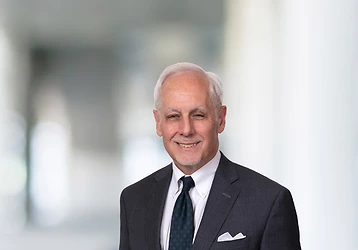U.S. House Passes Paycheck Protection Program Flexibility Act
Bill Would Make Significant Modifications to PPP Loan Program
On Thursday afternoon, May 28, the U.S. House of Representatives passed the Paycheck Protection Program Flexibility Act, H.R. 7010. Approved by an overwhelming bipartisan vote of 417-1, the Flexibility Act would make notable changes to provisions governing Payroll Protection Program loans under the CARES Act.
The Flexibility Act cannot become law until approved by the Senate and signed by the President. The Senate is not in session this week but is expected to return next week. The Senate had attempted to craft its own legislation addressing issues raised in the PPP program but was unable to reach an agreement. There is no indication yet as to whether the Senate will approve this Act.
Among the changes the Flexibility Act would make are the following:
- Extending the “covered period” during which Borrowers may spend loan funds on costs that qualify for loan forgiveness. The period is currently limited to eight weeks after the borrower receives the loan. The period would be extended to 24 weeks after receipt of the loan or December 31, 2020, whichever is earlier. Borrowers that already have loans may elect to retain the 8-week covered period.
- Changing the proportion of the forgiveness amount that must consist of payroll costs from 75% to 60%, and allowing up to 40% of forgiveness costs to consist of mortgage interest, rent, or utility payments. However, while the 75% rule simply limited the amount of forgiveness, under the new provision it appears that no forgiveness will be granted unless at least 60% of the loan amount is used for payroll costs.
- Allowing borrowers that are granted loan forgiveness to continue to defer payroll tax payments for the balance of 2020. The CARES Act currently provides that once a borrower is granted loan forgiveness of any amount, it may no longer take advantage of the payroll tax deferral otherwise permitted under the Act.
- Allowing borrowers until December 31, 2020, to restore reductions in workforce or reductions in worker pay that would otherwise limit or reduce the amount of loan forgiveness. Currently, borrowers have until June 30 to avoid forgiveness reduction by reversing workforce reductions or pay reductions for workers making less than $100,000 annually. Borrowers should note, however, that waiting longer to restore reductions will require them to delay applying for loan forgiveness if they wish to avoid limitations on the amount forgiven.
- Providing that the workforce reduction limits on loan forgiveness would be disregarded to the extent an employer can document one of the following situations:
- It has been unable to rehire workers who were employees on February 15, 2020, and to hire similarly qualified employees for unfilled positions on or before December 31, 2020; or
- It has been unable to return to the same level of business activity that existed on February 15, 2020, due to its compliance with health guidelines related to sanitation, social distancing or other customer or worker safety requirements.
- Extending the maturity of loans from 2 years (as provided in SBA rules) to not less than 5 years for loans made after adoption of the new act. This would apply to loans or portions of loans not forgiven. Although the new minimum period would apply automatically only to loans made after adoption of the Flexibility Act, lenders and borrowers would be free to modify the term of existing loans to conform to the 5-year term.
The Butzel Long CARES Act Specialty Team will continue to follow the progress of the Flexibility Act and other developments related to the PPP loan program. Butzel attorneys are ready to help with questions about PPP loans and loan forgiveness.
Join us for a PPP Webinar on June 1: PPP Audit and Forgiveness Webinar: Preparing for a Potential SBA Audit and Determining Maximum Loan Forgiveness (9:00 AM)
Join us for a PPP Webinar on June 1: PPP Audit and Forgiveness Webinar: Preparing for a Potential SBA Audit and Determining Maximum Loan Forgiveness (12:00 PM Encore)
Justin Klimko
313.225.7037
klimkojg@butzel.com
Bernie Fuhs
313.225.7044
fuhs@butzel.com
Brett Miller
313.225.5316
millerbr@butzel.com
Tom Kabel
248.258.2602
kabel@butzel.com
Rick Berg
313.225.7040
berg@butzel.com












